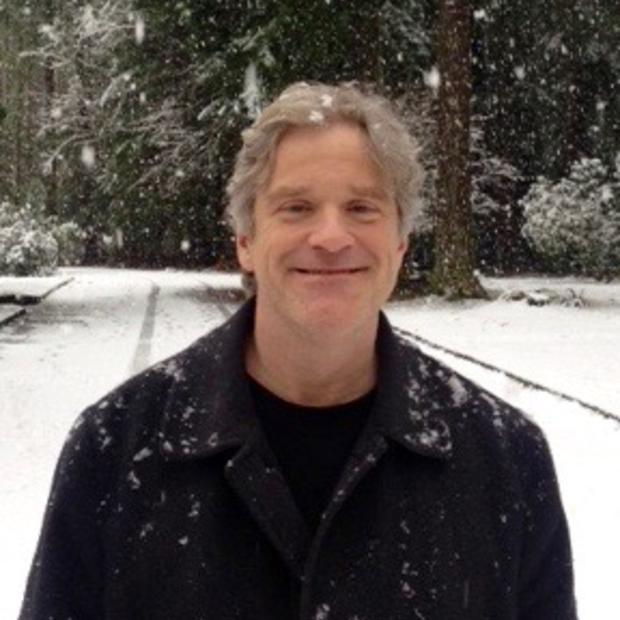The liquor-privatization initiative, I-1183, illustrates the value of transparency: Voter know who is responsible for the care and feeding of the political beast. As the Seattle Times Melissa Allison reports, Costco is the primary beast-provider, having "contributed $3 million in cash last week to a voter initiative it wrote that would push the state out of the liquor business, bringing its cash contributions for the measure to $9.6 million." In addition, Allison writes that Costco made in-kind contributions of $1.4 million, upping its tally to $11 million of the total $11.2 million raised. ("in-kind" is an amorphous catchall that can include anything from free office space to the use of a company jet). A less-ambiguous name might be "in-kind with an agenda."
Costco is tough to demonize (it's not Blackwater or, God forbid, Walmart). Nevertheless, the amount of campaign money shoveled around by both sides — during the Great Recession, no less — only enhances public cynicism and estrangement from the political process. For now, Washington voters can conclude that 1) Costco does not subscribe to the Howard Schultz maxim on suspending campaign contributions; and 2) Costco really, really, really wants you to support I-1183.
Picture former President George W. Bush getting hauled off by the Royal Canadian Mounted Police when he visits Surrey, B.C. next week. Amnesty International, not surprisingly, is recommending such a scenario. The Globe and Mail quotes Alex Neve, Amnesty Canada's secretary-general: "It is incumbent upon Canadian officials to investigate, arrest and prosecute former president Bush for torture when he arrives in Canada a week tomorrow."
Canada's Amnesty honcho gets the award for understatement of the month: "Mr. Neve conceded that arresting a former president would likely cause tension with the United States, but 'taking a principled step merits that sort of strain.' " However much it would gladden the hearts of human rights advocates (including Midday Scan) to witness the former president held to account for acts of torture acknowledged in his memoirs, the plan simply doesn't play out. "Uno momento to take Barney and Miss Beazley for a walk," Bush would tell his pliable B.C. jailers. Five hours later, he would be in Crawford high-fiving Dick Cheney and goading Canada "to bring it on."
Portland bests Seattle where it hurts: the book world. For the first time, the National Book Award finalists were announced in the Northwest, and in the Rose City rather than the Emerald one. As the Oregonian's Jeff Baker writes, "The National Book Award finalists — the Oscars of the book world — came to town on Wednesday, and just like at any awards show, there was suspense, humor and a little controversy. There wasn't a red carpet and nobody wore designer fashions; after all, these are writers, and this is Portland. And who dresses up to go on the radio?" This is almost too much for Seattle's cognoscenti to bear. Thankfully, Baker humbly underlines Portland's lesser-than status (making it more difficult to stew over). "Portland is well-known nationally as a book town, a reputation that helped bring the National Book Award announcement here. While some might argue that reputation is overblown — Portland tied for 10th with St. Louis in a study of America's most literate cities, behind Atlanta, Pittsburgh, Minneapolis and St. Paul, Minn. — there's no doubt it made a difference." First better micro-brews, and now this? However, since Baker obviously didn't mean to be all-encompassing in naming what cities finished ahead of Portland, perhaps it would be appropriate to assist Northwest memories by noting that Seattle, while slipping a place to fall behind Washington, D.C., on the literacy list, still finished No. 2.
Congress passed three new trade agreements on Wednesday, which supporters say will be a boon for the state, particularly for the agriculture sector. "Among the potential winners: U.S. agricultural producers who grow cherries, potatoes and apples, big crops in Washington state and the Pacific Northwest. Farmers expect sales to rise substantially when tariffs are lifted," writes Rob Hotakainen of McClatchy Newspapers. Hotakainen notes that Washington Rep. Doc Hastings "said the agreement with South Korea would benefit Washington state potato growers and processors by immediately ending an 18 percent tariff they must pay when exporting their products." Rep. Jim McDermott was a notable dissenter on the Colombia trade pact, concerned about questions of labor and human rights. "We talk about it all the time. We talk about it for every country in the world, but when we write a trade agreement for Colombia, we're unwilling to write in the demands for the Colombian workers. That's what's wrong with this," he said.
Finally, what's so funny about a family, lost in a corn maze, dialing 911? As ABC News reports, a Massachusetts family put the care of their kids first. "Fearing for the safety of their 5-year-old and 3-week-old children, the couple, whose names were not released, used a cellphone to call 911 just after dusk on Tuesday night." Cops sent in the k-9 unit to track them down (the couple was instructed to yell, "here, k-9!") How often have any of us, lost in the wilds of Ballard or West Seattle, considered something similar? There is GPS for iPhones, true enough, but GPS doesn't help when you're lost in a Massachusetts corn maze (or for some of us, most anywhere).
Link summary
Seattle Times, "Costco pours another $3 million into liquor initiative"
Globe and Mail, "Arrest Bush when he visits B.C., Amnesty tells Ottawa"
Oregonian, "National book award finalists: the Oscars of the book world come to Portland"
Seattle Times, "State expected to gain from trade agreements"


